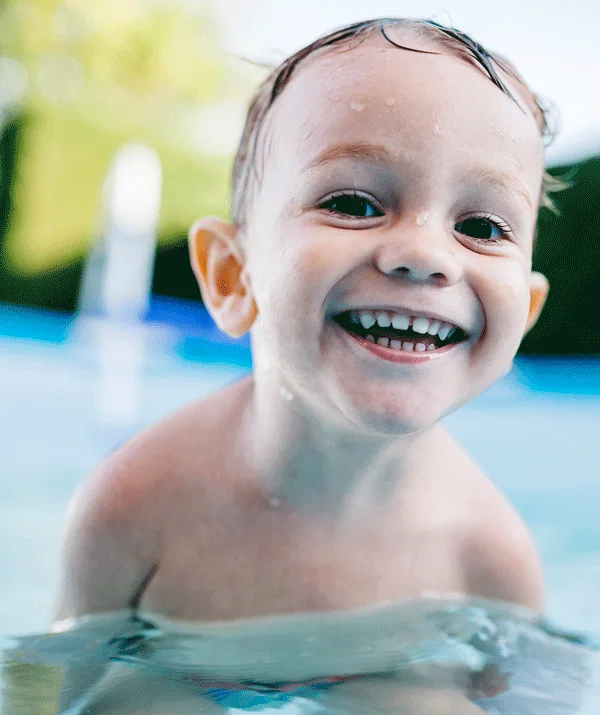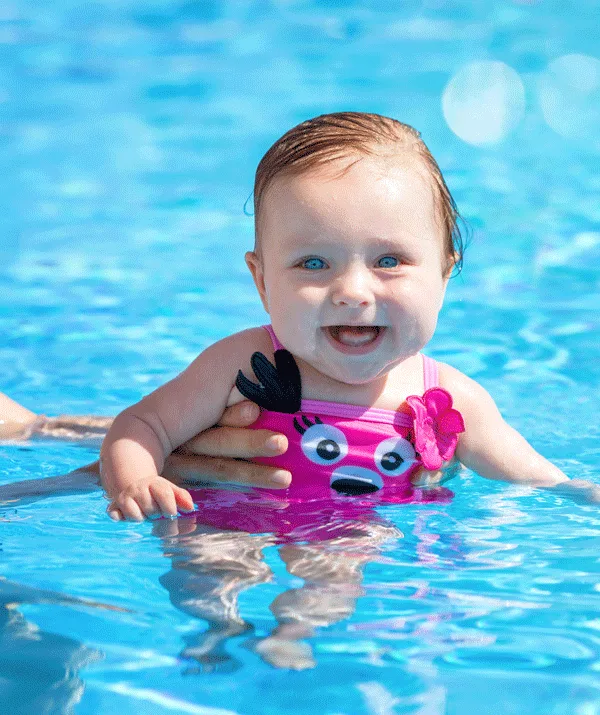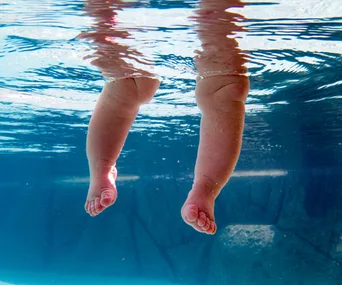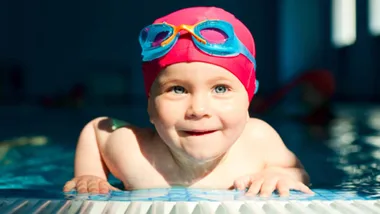Swimming is an Aussie way of life and as summer kicks off and families prepare for fun by the pool, parents need to remain vigilant about water safety.
In 2018/19, there were 12 Australian children under the age of five who lost their lives in swimming pool drownings. Under-fives are the most risk of backyard drownings and new research reveals that one in three families have had a near drowning experience involving a backyard pool. Despite this, a third of parents only check the safety of their pool area once a year or less.
Child water safety advocate Laurie Lawrence created the Kids Alive – Do the Five water safety program which educates the public on five important steps to reduce the risk of preschool drowning.
Kids Alive – Do the Five
Fence the pool
Shut the gate
Teach your kids to swim – it’s great
Supervise – watch your mate and
Learn how to resuscitate

Under-fives are the most at risk for backyard drownings.
(Getty Images)According to research by D&D Technologies, the manufacturer of the Australian-made MagnaLatch®, the main reasons parents of under-fives are not checking the pool area for safety include not knowing what parts of the pool area to check (19%), simply forgetting (18%), and not having enough time (10%).
Laurie says pool owners need to be diligent when it comes to safety.
“We know that kids who drown most commonly gain access to the pool area through a faulty fence or gate and this is something that should not be happening,” he says.
“Pool owners need to check their fences, gates, latches and hinges regularly, as a gate that is not self-closing and self-latching provides instant and often undetected access for toddlers to the pool area.”

If your child is under five, keep your child safe in the water by always keeping them within arm’s reach.
(Getty Images)Drowning prevention is every pool owner’s responsibility. December is National Check Your Pool Gate Month.
With over 2.7 million pools across Australia, if each one was safety checked, it would go a long way in reducing the statistics of tddler drownings.
Safety checklist for pool gates
Gate should open outwards, away from the pool
Latch release knob should be at least 1500mm above ground level
Gate must be self-closing and self-latching
Gate hinges should be rust-free and bind-free
Gate should carry reliable, tension-adjustable hinges
Latch must be adjustable for height and width.
Hinges must be adjustable for closing tension.
Latch cannot be key locked in the “open” position
Latch cannot be disengaged using implements
Gate latch cannot be shaken or jolted open
Gate will shut securely from any open angle or force
Gate complies with all Australian Standards for pool safety
Download a safety checklist at Check Your Pool Gate.
Pool safety advocate, Laurie Lawrence ureged pool owners to check their gates.
(Instagram)

